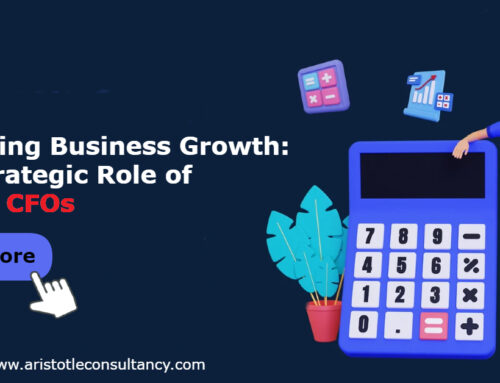Building the dream team for a startup is essential and probably the first major step that goes into starting a business. As we have mentioned in our previous articles, a very important role in this team is that of a CFO. There is a variety of literature online on the subject of choosing a CFO and how to identify one for a startup. Today we will be critically analyzing one such article by Mark Macleod which lists the 7 roles the best startup CFOs play. The complete article can be read here: http://www.startupcfo.ca/2008/07/the-high-performance-cfo/
Key attributes for a Stsartup CFO

The 7 traits of a Startup CFO are as below:
- Technician: Mark starts with the most basic attribute of any CFO – knowledge of accounting. He lists a professional accounting designation (CA, CPA) as the foundation for a CFO. We have seen many firms opting for an MBA for a CFO role, which may work only if he/she is backed by a team which has sound accounting knowledge and a good communication channel with the CFO. However, as Mark mentions in the linked article “ an MBA does not begin to cover the accounting, process and tax knowledge needed to steer a company’s finances”.
- Financier: This is the most important aspect of a CFO that a startup requires. A well networked CFO has the ability to bring potential financial sources on the table. “The high impact CFO not only runs the deal process for fundraising, but should also bring deal flow into the company.”
- Lawyer: Having a CFO who is comfortable in handling legal aspects and aware of the regulatory environment in which the business operates is a huge advantage to any startup. We have already mentioned how important it is to manage Legal and Financial aspects of a business.
- Closer: It may seem counter-intuitive to think of a CFO as a member of sales team but a good CFO can provide a lot of critical input to the closure of sales. As a finance head he/she is aware of the receivables outstanding and can help to follow up and close the sales completely. “Even before close, the CFO should be actively involved in managing and optimizing your sales pipeline and should be deeply engaged in sales.”
- Operator: We will be covering in future articles the importance of integrating operations with finance. A good CFO can help in creating day to day process that makes the operations work like a fine tuned and well oiled machine. “This doesn’t mean bringing in ISO 14001 or whatever the latest flavour is. Instead, it means installing just the right amount of process, reporting and structure.”
- Sys Admin: We live in a world where technology can not be ignored. A good CFO, irrespective of the maturity of the organization, needs to be comfortable in information technology and in extracting the maximum utility from the systems in place.
- Cheapskate: The CFO should be able to extract maximum out of every Rupee that has been invested in the business. He/She is the one who steps in to curb the unnecessary expenses which helps in checking profligate habits that can prove harmful in the long run
- Consigliere: The most confident CEOs may find themselves in trouble while taking tough decision and rely on the experience and expertise of those around them. The CFO needs to be someone who he/she is comfortable in approaching for any advice and counsel in making those decisions.
Conclusion
A startup is a place where each and every person is expected to perform more than one role and don various hats. A good startup CFO doesn’t confine themselves to a single role as their input is critical to every function of the organization. It is, however, tough for a startup to find a CFO who imbibes all these qualities and is affordable. Services like ours try to bridge this gap by including people from different areas of expertise and provide a single point of solution to the various demands that a CFO needs to meet for our clients.
Learn more about accounting outsourcing at Aristotle Consultancy.






